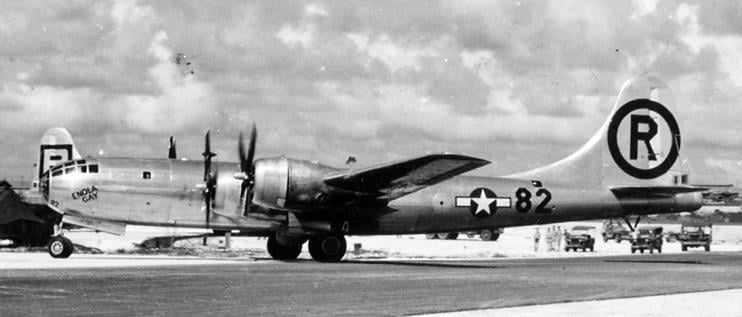Like many historical questions, critical reassessments of the dropping of an atomic bomb on Hiroshima and then Nagasaki 75 years ago have moved generally from right to left. In the 1950s and even later, when National Review was unmistakably on the right, challenges to this decision were almost the orthodoxy of the day.
The first time I saw the establishment wisdom about the necessity of the bombs being challenged was while reading National Review as a college student. A telling objection came from Chicago Tribune reporter Walter Trohan, who uncovered the negotiated peace terms between General Douglas MacArthur and the Japanese government in January 1945. The memorandum outlining the terms that the Japanese were willing to accept was given to President Franklin Delano Roosevelt shortly before the Yalta conference in early February. But, from all accounts, the president treated them and MacArthur’s undertaking dismissively.
Except for the retention of the Japanese emperor, the terms that FDR apparently scorned look like the ones the Japanese accepted after the bombs were dropped. They also bear a resemblance to the explicit and implicit terms of surrender that Professor Alan J. Levine locates in the Potsdam Declaration of July 1945.
I mention this road not taken because it was an earlier American right that brought it to my attention. It was the liberal establishment back then that set out to defend the policies of the Roosevelt and Truman administrations in how they brought the war to a conclusion. More recently, it has been the neoconservatives, the heirs of that earlier liberal establishment, who have taken up the same arguments in journals such as Commentary, which fully justify the use of the atomic bombs to force a Japanese surrender. The only alternative to this devastating action, these neoconservative authors state or suggest, would have been a costly invasion of the Japanese islands to force the imperial government into surrender.
The left has now switched to attacking the decision to drop the bombs for its own ideologically driven reasons, whether because it was racist—as argued in the writings of Howard Zinn—or because it was really aimed at the Soviets and was an aggressively anti-Communist move. Few may still remember what used to be the conservative reasons for questioning the use of the atomic bombs.
The central piece in our seminar on the dropping of the two bombs comes from Professor Levine, who has written voluminously on the diplomatic history of World War II. In Levine’s view, the dropping of a single atomic bomb on Hiroshima would have sufficed to bring about a Japanese surrender. Even without the use of a second bomb, that act would have allowed the peace party at court and the emperor to prevail against those who wished to continue the war.
Levine does not consider the invasion of the islands to have been a realistic option, but he does indicate that whatever other means may have been applied to force the Japanese to surrender would have resulted in more deaths than were caused by the dropping of the two atomic bombs. He views the atomic conflagration as the least destructive path then open to the U.S. Please note that Levine is not writing as an inspired fan of the “Good War.” He is pointing out what he sees as the limited options that were available to the U.S. at war in the summer of 1945.
Michael Scheuer, who partly responds to Levine, is much more enthusiastic about the use of the bombs. Although a well-known critic of American involvement in the Middle East, Scheuer is much more positive about the American decision to end the war with Japan as quickly as possible. Once the American government became committed to bringing down the Axis powers, he explains, it was necessary to pull out all stops to achieve the desired end. Unlike Levine, whose father in 1945 was still in training as a pilot, Scheuer’s father was already engaged in the fighting.
C. Jay Engel, who is the founder and editor of the Austro Libertarian Magazine but also a self-described paleoconservative, cites critics of the use of the atomic bombs, including the esteemed conservative senator from Ohio, Robert A. Taft. Not shy about pulling in evidence from wherever he can, Engel appeals to, among others, New Left historian Gar Alperovitz. Engel does not reprise Alperovitz’s thesis entirely, that the bombs were designed to threaten the otherwise peaceful Soviets, but he does agree with Alperovitz that their use was intended as a strategy for projecting American power. There were other ways, Engel insists, to bring the Japanese to the negotiating table, but none would have been as useful a power statement as the dropping of the bombs.
The comment by our foreign affairs editor, Srdja Trifkovic, sheds a different light on the relative importance of the decision to drop the atomic bombs. Trifkovic brings up the often-neglected fact the Soviets chose to declare war on the Japanese after the atomic bomb was dropped. Although the threat of invasion may not have been the main reason for the unconditional surrender, this oft-ignored development certainly may have influenced that decision.
Image Credit:
above: The Enola Gay [Image by: US Air Force / in the Public domain, via Wikimedia Commons, resized]

Leave a Reply